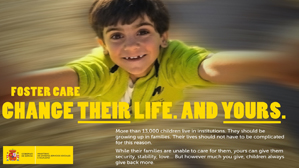
Vulnerable Childhood: Audiovisual Narratives in Spanish Social Advertising
Abstract
Social advertising has become a crucial device for a variety of different public and private organizations looking to raise social awareness about socio-cultural vulnerability and possible ways to alleviate it. In Spain, one of the European countries hit hardest by the economic and financial crisis of 2008, the percentage of vulnerable people in the population has grown in the last decade and some groups have become extremely exposed to the
sociocultural consequences of vulnerability: particularly children and domestic units with dependent minors.
While previous research has stressed its relevance, the scarcity of studies on this issue in certain contexts– has been also highlighted, especially in non-English-speaking countries. This article attempts to fill that gap by
analysing the audiovisual representations of vulnerable childhood contexts that social advertising has generated, using an intentional sample of 32 spots, as well as exploring the theoretical and ideological assumptions that underlie such representations.
From this perspective, I examine the conditioning factors and biases that can lead the social campaigns sponsored by both governmental bodies and non-profit organizations to take on a particular shape. I will also reflect on the treatment of vulnerable groups, who are simultaneously made visible and invisible by such campaigns.
sociocultural consequences of vulnerability: particularly children and domestic units with dependent minors.
While previous research has stressed its relevance, the scarcity of studies on this issue in certain contexts– has been also highlighted, especially in non-English-speaking countries. This article attempts to fill that gap by
analysing the audiovisual representations of vulnerable childhood contexts that social advertising has generated, using an intentional sample of 32 spots, as well as exploring the theoretical and ideological assumptions that underlie such representations.
From this perspective, I examine the conditioning factors and biases that can lead the social campaigns sponsored by both governmental bodies and non-profit organizations to take on a particular shape. I will also reflect on the treatment of vulnerable groups, who are simultaneously made visible and invisible by such campaigns.
Full Text:
PDFRefbacks
- There are currently no refbacks.
ISSN Print 2499-9288
ISSN Online 2281-1605
Publisher Edizioni Museo Pasqualino
Patronage University of Basilicata, Italy
Web Salvo Leo
Periodico registrato presso il Tribunale di Palermo con numero di registrazione 1/2023


